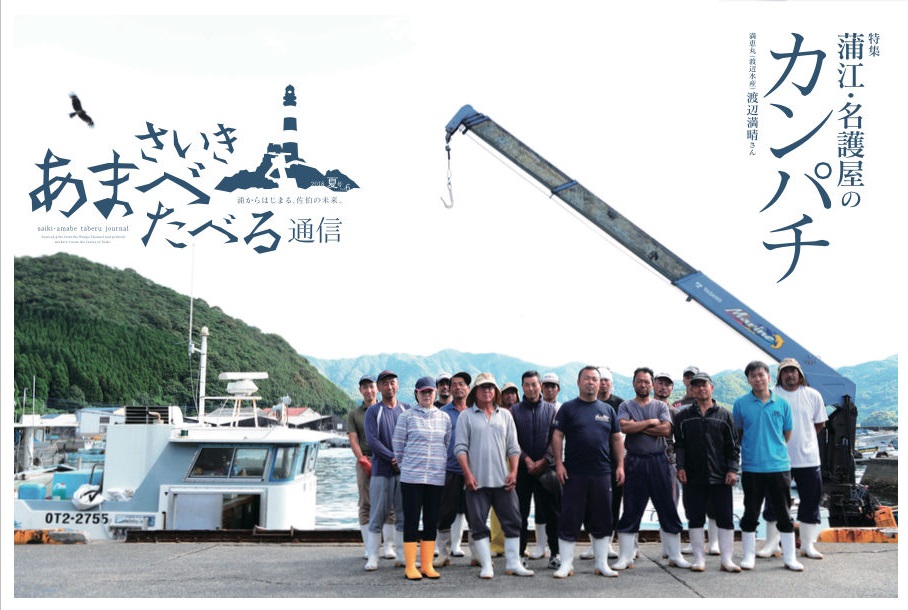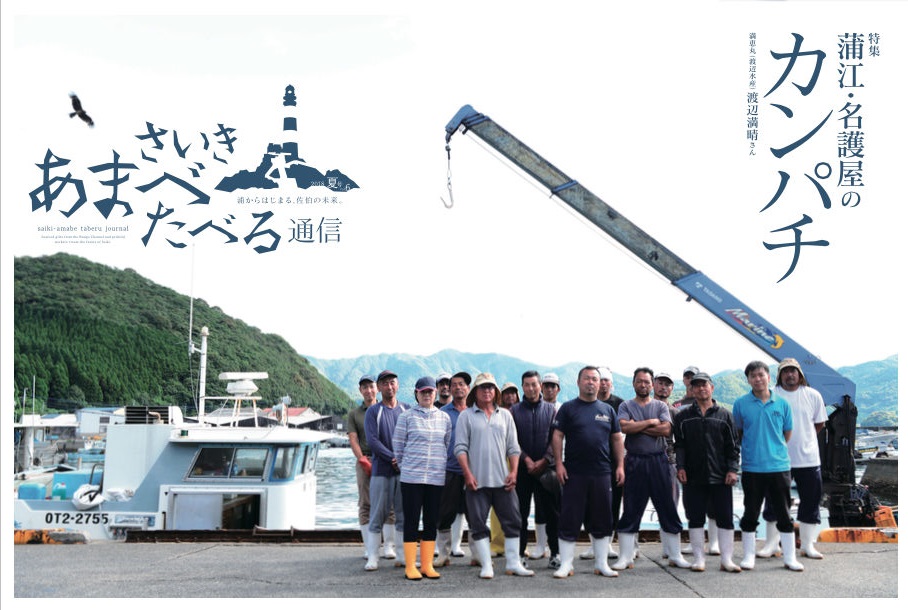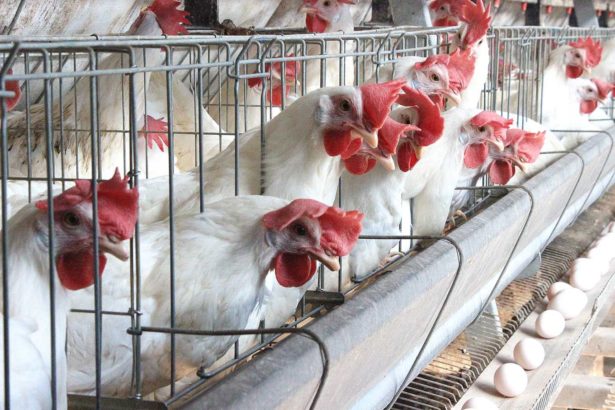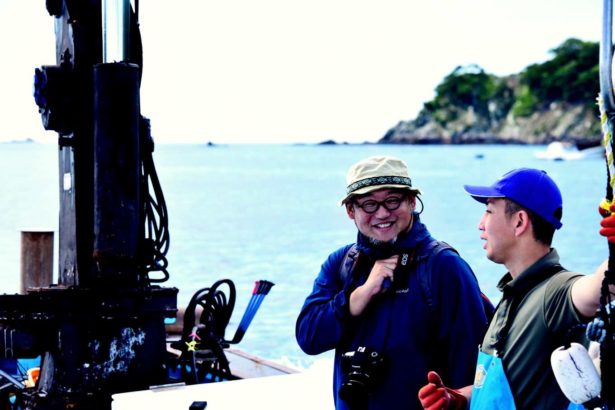The Light of living on the Sea and processing an interview with ─ Hirakawa, Editor-in-Chief of │ "Zob Haibu Food Communications"
55 share
In the front line of processing, shine on all those who pay for the production of food. Chang Hirakawa, editor-in-chief of −− 'Zobu Haibu Communication'
─ Hirakawa (Hirakawa Osamu), editor-in-chief of Zobu Haibu Communications, runs a company responsible for seafood processing and sales in Zobo City, Oita Prefecture. Zobo has been a thriving aquaculture town since ancient times. In the Edo period in history, there was a common saying, "under the Zobo temple, live on the sea."
In the past, food needed to be delivered from producers to consumers' tables through the hands of many people, but people rarely had the opportunity to understand the thinking of front-line workers in food processing and the current situation of the industry. Mr. Hirakawa cut into the front line of supporting "food" from the perspective of 1.5-tier industry and secondary industry. He questioned the proper relationship between the "producer" and the "eater".
The following article is published under the authorization of the Japan Food Communications Union, interviewed / written by Miyoko Takazaki, translator: food Communications Taiwan Affairs Bureau.


It is not just the primary industry that supports the supply of "food" by ■.
Q: "Zob Haibu Food Communications" was launched in April 2017. Excuse me, Hirakawa, why did you want to do "food communication" in the first place?
I own a company that is mainly responsible for the processing and sale of seaweed such as kelp sprouts or deer tail vegetables. When I founded Zob Haibu Food Communications, I considered that I was in the front line of aquatic processing, and I felt that this magazine should not only focus on the first-tier industry, but should also let everyone know the ideas of people related to the first-and fifth-tier to second-tier industries.
Before consumers receive the food, someone has to wash and cut the food, and many people are in charge of processing. Although it is true that some of the processors are doing the job with enthusiasm, there is little chance of being understood. Consumers do not even realize that the supply of "food" is not just in the upstream first-tier industry. What we Zobu Haibu Communication want to do is not only to see the fisherman or the role of the farmer, but also to include processing, hoping to shine the light on all the people who pay for the production of food.
Q: although Zobo is known as the "gourmet town", what does Mr. Hirakawa think of this place when he returns home?
It was only when I came back to Zobo six years ago that I once again felt that there were many things in this place that were taken for granted or even terrible. Zob has a lot of fresh fish, and even the fish bought in the supermarket are delicious. It is common to have delicious fish here. However, from another point of view, these things are not taken for granted. Some people go fishing, some people are in charge of processing, and it is through the hard work of many people that people can eat Zoe's fish.
But in fact, even the local people can not see the face of the producer. Obviously, this is a town with the leading aquatic processing technology in Japan. All people just eat these fish, but they don't understand what the front line of food in their hometown looks like.
Zobo City in Pingcheng 21 years (AD 2009) laid down the "Gourmet Town Construction regulations (Food Celebrity Township regulations)", vowing to create a "gourmet town". However, I always feel that there is still a gap between this slogan and reality. Although it is verbally said that this is a "gourmet town", it seems that something is missing. In my opinion, if, at the citizen level, people do not have a better understanding of the origin of the cuisine in their hometown, is it not good to say that they are a "gourmet town"?
In fact, from the perspective of the industrial structure and population changes of Zobo City, the number of people engaged in fishing has been decreasing. It is said that there are about 500 species of fish in the Fenghou Waterway in Oita County. But now, with the rising temperature of the sea and the influence of the Kuroshio snake, we no longer catch as many fish as we used to. The period of being able to fish every year is no longer fixed. Even if fishermen make great efforts to get the fish back, with the change of modern eating habits, people no longer eat fish, resulting in some fish left over.
In addition, aging has also caused many people to give up fishing, and there is no one to inherit it in the future. this is the current situation of our fishing industry. When the figure disappeared on the coast, only the number of open spaces and parking lots increased in Zopper's streets. I want to start the background of 'Zob Haibu Food Communications' because I am aware of the crisis, and if it goes on like this, my hometown may disappear.
The ■ Kumamoto earthquake touched the opportunity to launch the publication. "even if someone wants to do it, they won't have a chance to do it."
Q: what will Mr. Hirakawa know at the beginning of the opportunity for "Food Communications"?
After the earthquake in East Japan, a friend of mine who participated in the non-profit organization "Katariba" helped with local disaster relief in Tohoku. At that time, I also went to Northeast China as a volunteer and accidentally learned the news that 'Northeast Food Communication' was going to be published on the community website. I also participated in their mass fund-raising. At that time, I felt that "even if I left the Northeast, I also wanted to do something for the food communication." The business structure of 'Food Communications' has touched me a lot of ideas, and I would like to say that I also want to run a food communication office in Dafan one day.
The biggest push behind me was the Kumamoto earthquake in April 2016. After the earthquake, I specially went to participate in the emergency support activity held by Kumamoto Food Communications at Chongcheng University in Kumamoto Prefecture. They themselves are not only affected by the earthquake, but also help with local reconstruction, even if they want to do the next issue. Seeing the difficulties they are facing, I deeply feel that if I don't act immediately when I have the will to do it, I won't have a chance to do it. So the next day after that, I made up my mind to start a publication.
Q: what hard things happened before the actual publication?
At that time, it took a lot of effort to find the editorial team. Even though I have experience in making projects in the past, there are no designers on the ground. I searched around for a long time. I didn't even know where to start. I finally decided on the candidate three months before the publication.
As a result, a writer I knew when I was working at Recruit agreed to help with the designer. Miss Hiroko Saeya, as deputy editor, is in the same grade as me. She had experience as an editor in the past, and before I came back to my hometown, she organized everyone to do social work in Zobo. As for our photographer, Mr. car house, I once met a web designer at an event in Miyazaki prefecture. After he showed me a picture of his friend, I liked it very much, so I quickly persuaded that friend to be our photographer.
Everyone on the team can understand the idea of "Food Communications" that I want to create, which is really the best team. As a matter of fact, the producer of our inaugural issue, "kissing Fish", is also in the same grade as me. As long as you have faith, distance is not a problem.
Q: how did Zobo's people react after the publication?
At present, the popularity of this media is still not high, but everyone is shocked when they hear that there is a magazine like Zob Haibu Food Newsletter. I can't believe there is such a magazine. Some people say that some of the things written in it are even unknown to the local people. It has also been used in the food farmer education curriculum in primary school before.
Q: how many readers are there now?
A little less than 300. Of these, 1/3 are in Tokyo, 1/3 are in Oita prefecture, which includes Zobo, and the rest are in other areas. Many readers come from metropolitan areas such as the capital circle and Kansai. People often say to me, "if I didn't know Mr. Hirakawa, I wouldn't even know that Zobo exists, let alone be connected to it."
I really appreciate hearing that. Some people in their thirties agree with us and become our readers. This also makes me happy, and many readers have visited Zob as a result.
Q: so is there anything hard after the publication?
That is to find that there is a time difference between the fish that our plan wants to report and their actual catch. And in order to deal with fresh ingredients such as fresh fish, we also put a lot of effort into hygiene management. Including the processing process, we also introduce the HACCP (Engineering Management) system so that we can clearly control the processing process. Because this is different from the seaweed processing process, I also learned a lot from it.
QRV 'Zobu Haibu Communication' interweaves people's stories through multiple perspectives such as producers and processors. What is Mr. Hirakawa's secret in the interview process?
I would like to take the time to do several interviews, and I have interviewed the same producer more than ten times for a special. Other producers will say to me, "Ah, are you here for an interview again?" .
It also spends a lot of effort on production for the texture of the magazine. For example, the main area interviewed by our magazine is limited to the coastal zone of Zobo, which is only an hour's drive wherever you want to go. When we went to visit people one after another at the end of the year, some producers even said to us, "you're back." To me, we are no longer like the relationship between the interviewer and the interviewee, but more like a big family.
I will want to know more about each other, and even want to fly into each other's arms. Doing business is the same logic, what kind of words should be dug out from the producers? Although I have experience in business and execution when I worked at Recruit in the past, the most important thing is that Focus is "human". After meeting many times because of the interview, there will always be a moment when the producer will be willing to reveal his truth to you.
What ■ saw after it was put into the aquatic product processing industry
Q: what is the opportunity for Mr. Hirakawa to work in the aquatic processing industry?
Originally, my hometown is a seafood processing company. My father is already in his seventies, and he is worried about what this place will look like in the future. Although he will not be able to take up the family business immediately after returning to his hometown, he will learn it step by step.
Q: have you ever had a moment of confusion when you moved from your previous job at Rickley to another field?
Because of the different markets, there are still many places to learn in order to master the special language and the trend of the industry. My experience in the business and other industries I have done in the past has given me a lot of applications in marketing practices and sales strategies in terms of result theory, although the operation is different, but the nature of the business has not changed.
Q: among the chief editor of Food Communications across the country, Mr. Hirakawa is also the chief editor who is very familiar with the frontline of aquatic products processing.
I am the only one who runs an aquatic products processing company and is the chief editor of Food Communications on the other. Although we also do some business such as buying raw materials with fishermen, in our industry, producers still speak loudly. We are just a small company, and it will be over if we can't buy the raw materials. So we have to increase the added value in the process of processing.
"Seafood" it is also a "product of heaven", so the price is always fluctuating. Fishermen will work hard when the price is good, and even cut some seaweed that they don't normally pick and sell it when the price is popular. In this way, a lot of effort will be spent on processing. If the purchase price is too high at the beginning, it will be reduced to the interests of processors when selling.
We also know that producers of primary industries will want their products to be sold as high as possible. However, if the purchase price is too high, it will not be sold. In the end, if the goods are hoarded too much, the price will plummet. How to take care of the overall balance and maintain the right price is a very important thing. (the article to be continued, please click here to continue reading)
Serial production and Marketing Co-operative ─ Local Minister of creation rewarded Hiroshi Takahashi, "Japan Food Communications"
[Nippon Communications] subscribed to the magazine with ingredients, and Nippon Food Communications joined the production and consumption community.
Read more long stories from the editor of Food Communications: https://taiwantaberume.wordpress.com/
- Prev

Put an end to the nightmare of underground medication in chicken farming! The Bureau of Prevention and Inspection will announce that the insecticide "Ake lice" can legally kill chicken lice.
Put an end to the nightmare of underground medication in chicken farming! The Bureau of Prevention and Inspection will announce that the insecticide "Ake lice" can legally kill chicken lice.
- Next

An interview with ─ Hirakawa, editor-in-chief of │ "Zobu Haibu Communication" in Zobo's aquatic processing industry.
An interview with ─ Hirakawa, editor-in-chief of │ "Zobu Haibu Communication" in Zobo's aquatic processing industry.
Related
- A course of planting techniques and methods on how to grow carrots
- How to plant the latest tulips?
- Is it better to pick tea in the morning or in the afternoon? When is the best time for tea to be picked? what is the third or fifth tea?
- Launch Yuanxiao Happy combination Haocha + Tea Yuan healthy Taste
- Penghu Tourism "Fireworks 20 Parade with You"
- 2022 West Lake Happiness holds "Digital Revitalization Voucher" and draws iphone13 and laptop.
- Banqiao Fuzhou social houses are designed to change start-up combined with police elimination to create a safe and livable environment
- The convenient measure of "mechanical weeding" in Xinbei has been abused and the Agriculture Bureau has imposed heavy penalties on the illegal land consolidation.
- Changgeng University Joins Hands with Four Memory Factories to Rescue Memory Talent Shortage
- The list of Taiwan's top 100 MVP managers is listed by the Director-General of the Farmers' Association of Sanxia District.

